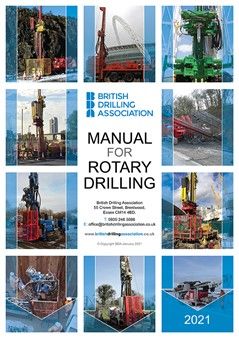BDA Webinar – 23 October 2024 | Guidance to get your Coal Authority Permit application right first time
The British Drilling Association (BDA) is pleased to announce its webinar, titled: ‘Guidance to get your Coal Authority Permit application right first time’, which is scheduled for 23rd October 2024, at 1pm. This one-hour webinar is particularly timely, given recent updates to the Coal Authority’s Permit Terms and Conditions, aimed at streamlining processes and enhancing compliance.
Webinar Overview
The Coal Authority’s permit appraisals are more rigorous – its standards have improved over time and permit work is considered especially important to secure public safety from access of Coal Authority’s property, reduce the Authority’s future liability (under the Subsidence Act) and manage future public spending.
Some developers, designers and consultants have less knowledge and understanding of the coal mining legacy and remediation resulting in poor permit application submissions. This results in protracted correspondence cycles to reach an acceptable outcome. The main aim of the webinar will be to share tips on how to make a good quality application.
The webinar will be presented by Riwilo Masulani, Principal Permitting Manager at The Coal Authority, who will be joined by a Technical officer, a Permitting Manager and an Engineer, who will share tips on:
- – completing the application form
- – information required for site investigations and land remediation
- – proposals requiring engineering appraisals
- – explanation of our permit terms and conditions.
The presenters will also give brief feedback on improvements the Coal Authority is making to provide a faster turnaround of permit applications.
Registration
The webinar will be delivered via MS Teams and is FREE to attend. To request a link to join, please contact: bdajooce@britishdrillingassociation.co.uk
Keeping you in the loop
Sign up to our newsletter to keep updated on our latest news.




